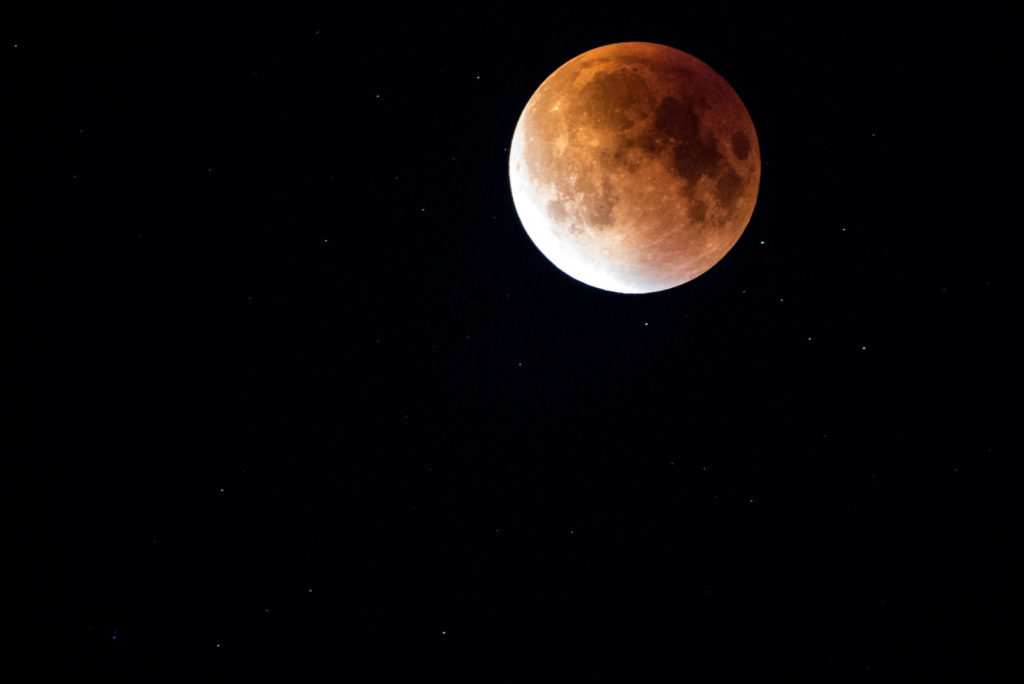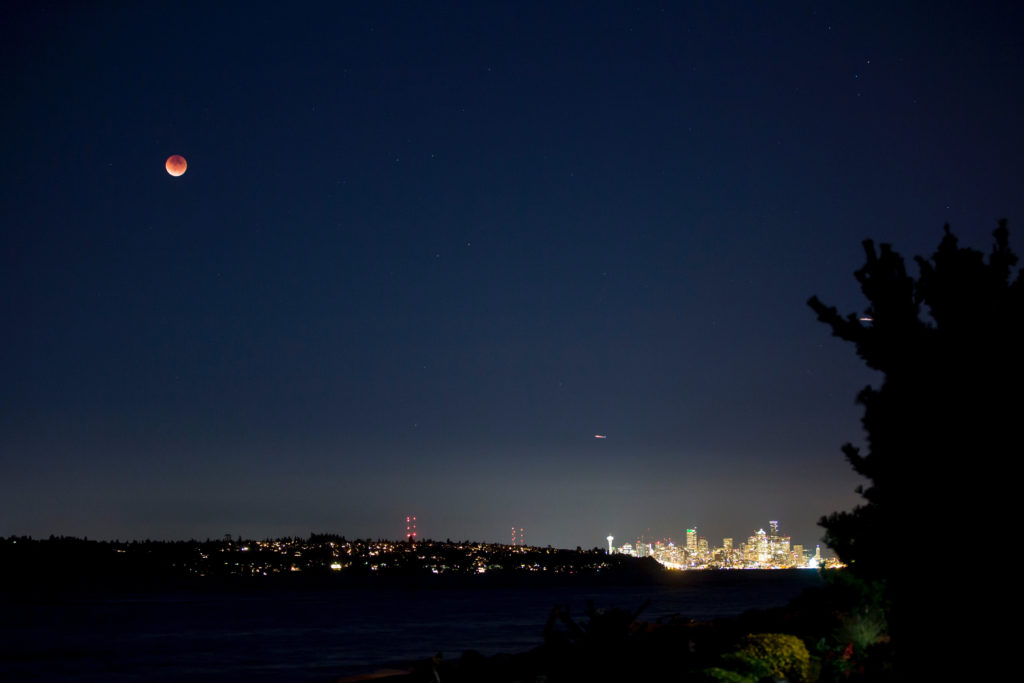A Supermoon reminds us of three miracles about everyday life.
If the moon was smaller, bigger, closer or farther, we wouldn’t be alive.

Fire-up your spirit with these Moon miracles.
Moon miracle #1: Flourishing life
If the Moon’s shape or location were any different, tides would go haywire.
“Without the full-mass moon to hold us steady, life on Earth might have experienced greater seasonal fluctuations. The outlook for life would have been dim—literally.” Neil F. Comins, Professor of Physics and Astronomy, University of Maine
That’s right. If the Moon was a tad larger, ocean tides would be extreme.
Scientists speculate how abnormal tides would affect life on Earth. But, most agree there would be no coastal cities or towns.
- Moon too close? Disruptive tides
- Moon too far? Dirty seawater
The Moon is positioned perfectly for flourishing of life on Earth.
And so are you.
“When I consider your heavens, the work of your fingers, the moon and the stars, which you have set in place, what is mankind that you are mindful of them, human beings that you care for them? You have made them a little lower than the angels and crowned them with glory and honor.” Psalm 8: 3-5
Moon miracle #2: See the artist
Naturalists believe the Moon can be explained by the giant impact hypothesis.
- A large object hit the earth over 4 billion years ago
- Millions of pieces somehow get together to form one moon
- Only then did our atmosphere become capable of supporting life
Never mind that the odds of two objects striking head-on are similar to two bullets being fired on either side of Death Valley and striking each other so that their location falls neatly together.
We wouldn’t exist if the bullets were off by a hair’s breath.
Doesn’t this take more faith than believing a director orchestrated this?
“The day is yours, and yours also the night; you established the sun and moon. It was you who set all the boundaries of the earth; you made both summer and winter.” Psalm 74:16-17
Moon miracle #3: Stabilize the Earth
The only planet in our solar system with one moon is the Earth.

Is this an accident?
- Venus and Mercury are moonless
- Mars has 2
- Jupiter has 79 (to date)
- Saturn has 53 and 9 unconfirmed
- Uranus has 27
- Neptune has 13 and 1 unconfirmed
Relative to the size of the Earth, our Moon is the largest.
“He made the Moon to mark the seasons.” Psalm 104:19
The size and location of our Moon stabilize the Earth’s axis.
If the Moon was not exactly at the right spot, the Earth’s rotational axis would have changed over time not supporting life as we know it today.
The Moon reminds us that the Creator is our source for flourishing and stability.
Can anyone really escape the astonishing miracles of the Moon?

Very interesting about the exactness of the mass of the Earth as per our survival. It is interesting to me that at the level of our solar system, the conditions for life on a planet are rare. Yet if we consider the number of solar systems just in our galaxy, and then the number of galaxies that we know of in the universe, life may be classified as a minority case rather than as rare. In other words, scale may matter. Even if life is a minority case, that would still mean that life is not the norm in the universe. We could even say that the vast majority of mass in the universe is dead in the sense that no life is on it. Yet considering the billions of galaxies in the universe, and all the solar systems in those galaxies, we simply cannot say what is out there. For all we know, our solar system wherein only one planet has life (that we know of) may be an exception in the big picture.
Point well taken Skip. But, I disagree. I think “rare” rather than a “minority case”. We tend to forget or may not know all of the complexities in balance and in play just for life on earth. Never mind other planets potentially supporting life, why should earth be perfectly suitable for life? If not for the exact size of the Moon, the exact size of the Earth, the unique properties of water on Earth, the speed of Earth’s rotation, the precise distance from the Sun (not to mention all of the precise parameters of our Sun), the presence of an extremely large planet (Jupiter) that deflects comets and comet debris from the Earth and over 150 other variables related to temperature, atmosphere, energy and nutrients, no one would exist on Earth! That’s the miracle! To be fair, this idea of life on other planets was floated many years ago by Carl Sagan when we thought we knew that only 2 conditions are required to support life. But as years passed, scientists found many more conditions for life to exist and now understand why they are not finding E.T.s! I would say the argument that there are so many planets in our vast universe and other solar systems means some likely will support life is not logical. The fact is there is no scientific evidence for this. As the number of variables required for life exploded, the number of planets estimated to support these conditions has shrunk to zero. And yet the lauded theories trying to explain these precise conditions say they just “happened”. It’s an “accident.” This takes far more faith than to believe all of this is directed.
Very interesting essay. The main point I get is that life is not a foregone conclusion, as its beginning and continuance could depend on a very, very low-probability event. I don’t view climate change from carbon and methane as being a case in point, however, as pollution has not manifested by a low-probability low-chance event. In fact, we have kept up carbon emissions even when we have known what this means. It has been a steady rather than quick-event phenomenon. Yet all the same, it may cause the extinction of homo sapiens.
Thanks for your comment Skip. I agree with your reminder that carbon emissions are a threat to human fragility. This may sound crazy, but the most advanced science now leads us to conclude that the odds are dramatically stacked against any planet in our universe to possess the right environment to support life and that the existence of earth and life is an irregularity of the highest order. Yet, here we are discussing conditions that could take us out. If earth were slightly larger, it would have slightly more gravity. In this case, methane and ammonia gas would remain closer to our surface and we would die. If earth were slightly smaller, we’d have less gravity and water would not stay close to the surface and we would die. To think that the earth must be the exact size that it is or we wouldn’t exist now is even more sobering than the slow drip of carbon emissions.
God made two great lights—the larger one to govern the day, and the smaller one to govern the night. He also made the stars – Genesis 1:16 . Genesis chapter 1 provides the best and clearest way to explain how things came into existence. Works for me!
I agree with your “best and clearest way” reference Bill. The alternative, something like a Grand Unified Theory or Quantum Theory are deeply flawed because they cannot answer the supreme question of where the laws of physics come from or how they arose. Atheists have a predetermined mindset that all solutions about origins are restricted to the natural world. Predetermined philosophical mindsets drive theories more than real data.
Fantastic insight
Thanks Steve
Well stated Steve. As I watched the Wolf Blood Moon the other night the only words that fell from my lips is “You alone are God”. This is no accident. This is the handiwork of the Designer.
Great word Doug!